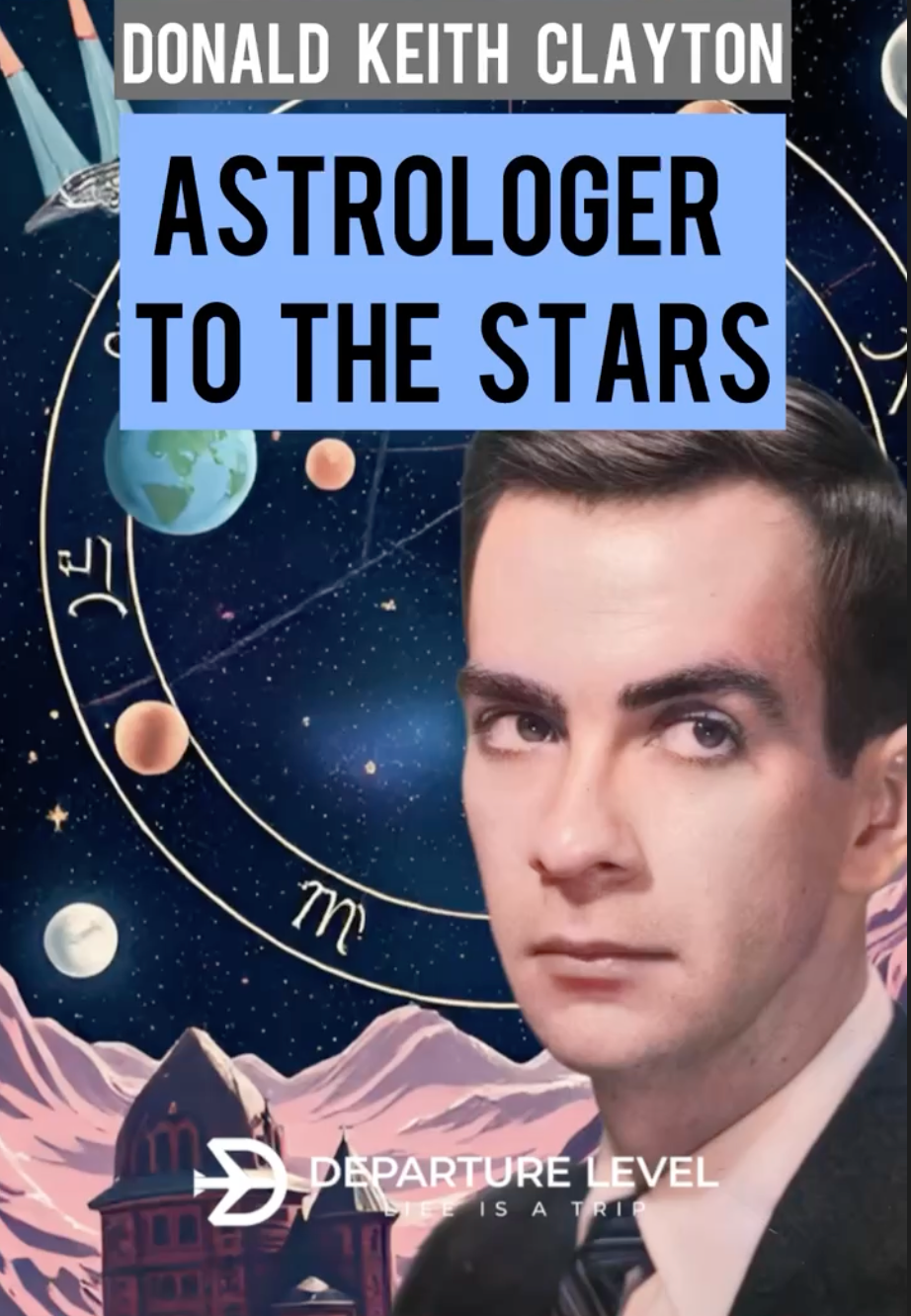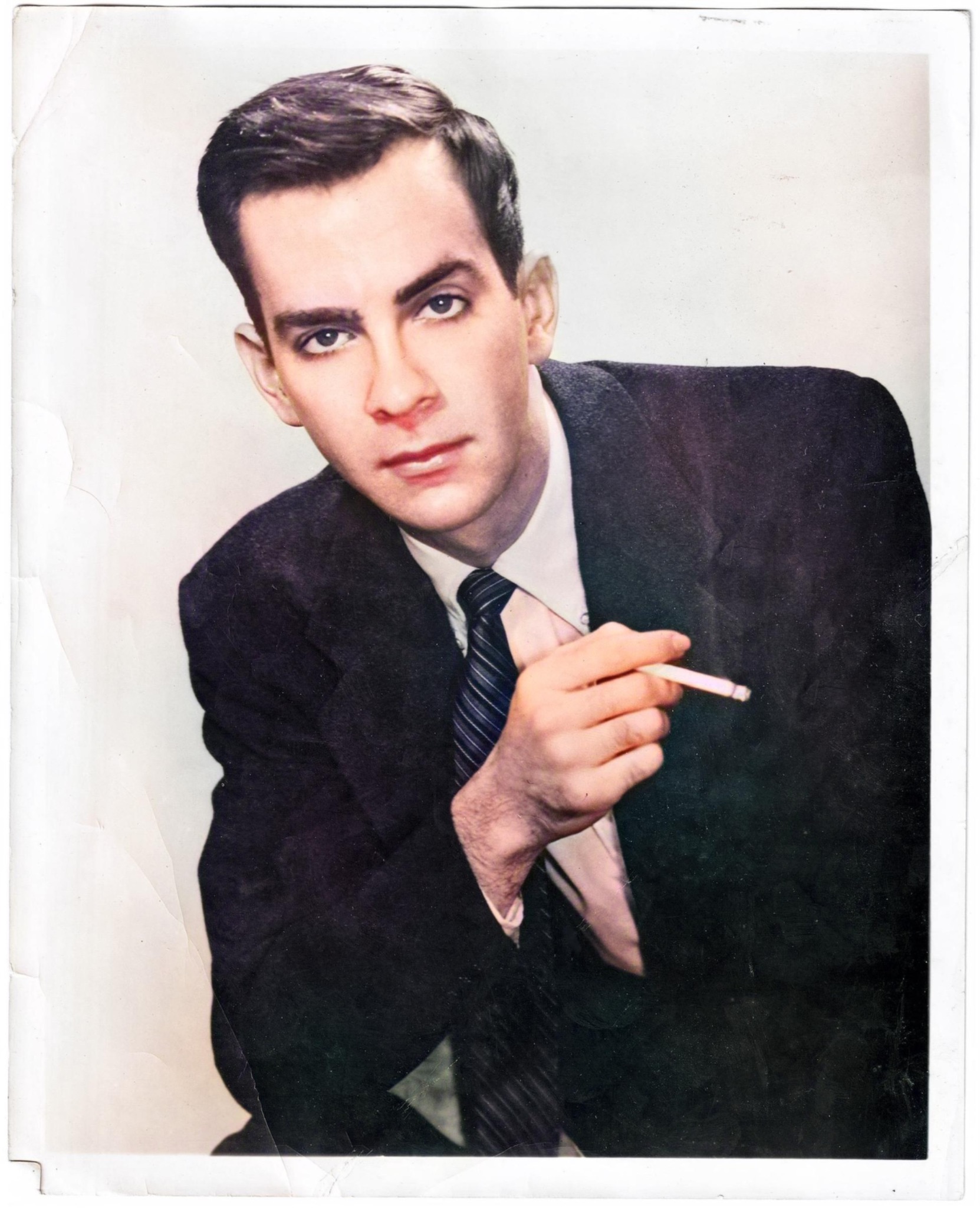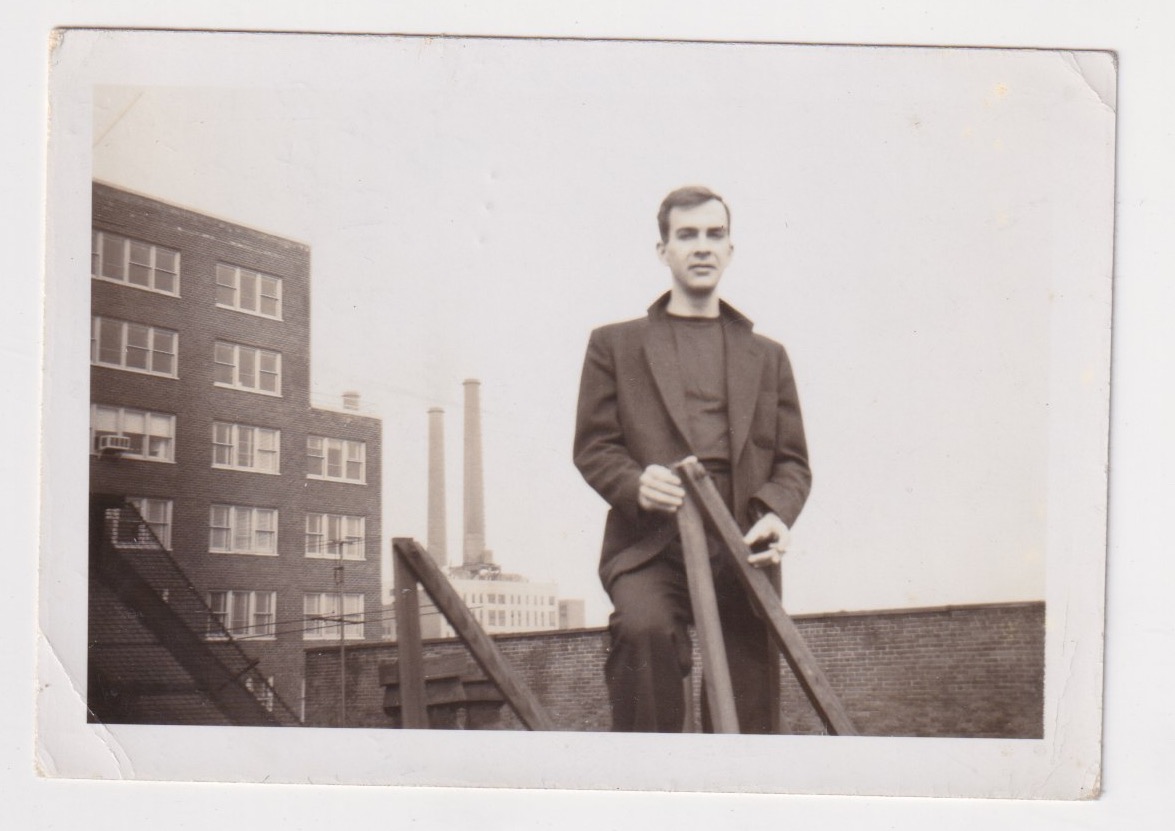1960s Celebrity Astrologer Keith Clayton Offers Glimpse of LGBTQ+ New York City
BY MARK CHESNUT

October is LGBTQ+ History Month, and October 11 is National Coming Out Day. So it's an ideal time to take a look back at the life of my uncle, Donald Keith Clayton, a celebrity astrologer who set his own, rather unique course as a gay man in the mid-20th century.
Growing up, I found my uncle's life to be a fascinating enigma. Donald Clayton, my mother's younger brother, moved from Kentucky to New York City, changed his name to Keith Clayton and became a celebrity astrologer, a profession that brought him fame and world-famous clientele.
Looking back at Don's short life now, we get a glimpse at how the LGBTQ+ community has evolved, and how my life as a gay man is different from his.
I've created an Instagram Reel that highlights Don's star-studded life. I also wrote about him in my memoir, Prepare for Departure: Notes on a Single Mother, a Misfit Son and the Enduring Allure of Frequent Flyer Miles.
Kentucky Roots
Born in Louisville in 1930, Donald Clayton — who later changed his name to Keith, after an astrological reading recommended the new moniker — was more than just an astrologer for movie stars. He was a multi-talented man who lived a far-from-ordinary life, one marked by ambition, creativity and a kind of defiant independence that I’ve come to respect.
After attending the University of Kentucky, Don moved to New York City in the 1950s, hoping to make it big in the theater world. He worked as an actor, writer and producer, throwing himself into the city’s bustling creative scene.
Hollywood Celebrities Who Hired My Astrologer Uncle
Theater seemed to be my uncle's first passion. But astrology was the career that ultimately made him famous. His client list reads like a who's who of Hollywood and high society: Princess Grace and Prince Rainier of Monaco, Lorne Greene from the TV show "Bonanza," and Sue Lyon, the iconic star of the movie "Lolita."
Don wasn't just offering cookie-cutter horoscopes in a street-front parlor. He blended mysticism with charisma and style that was apparently enough to win over the rich and famous with his cosmic insights.
His appeal was enough to also get him booked as a guest on "The Tonight Show" with Johnny Carson and "The David Susskind Show." As far as astrologers go, he was making a rather public name for himself as Keith Clayton, celebrity astrologer.
And yet, there was always tension within our family surrounding Don's life choices. Based on conversations I had with my mother many years after his death, it seemed she was more uncomfortable with Don becoming an astrologer than with the fact that he was gay. My mother was an agnostic who was raised in the Southern Baptist church, and astrology was too far off the beaten path for her and the rest of the family; they probably considered it frivolous or beneath his intellect. She clearly couldn’t grasp the importance astrology had in his life, even as it brought him some level of success.
My grandparents — Don's parents — referred to him as "poor Don," which, to me, reflects both their sympathy and their disappointment. Whether it was his career, his lifestyle or something else, they seemed to see Don as a man who hadn’t quite fit into the mold they expected. Even the fact that he died with credit card debt was a reason to pity him, according to my family — and to feel that he hadn't reached his potential.
Looking back now, as an adult gay man, it's easy for me to understand why Don distanced himself from the family. He lived in a world of theater, celebrities and other creative types in New York City. I only remember seeing him once while I was growing up — and it wasn't even a very positive memory, as I recount in my memoir, Prepare for Departure: Notes on a Single Mother, a Misfit Son and the Enduring Allure of Frequent Flyer Miles.
The geographic and emotional distance between Don and the rest of the family might have been his way of protecting his independence, of living authentically in ways he couldn’t in the presence of his family.
Even though I never bonded with Don, I admire him for never pretending to be someone he wasn’t. Even if he couldn’t be totally open about being gay in a 20th-century society that largely didn’t accept it, he never faked a heterosexual relationship, as far as I know. My mother even told me that he had a long-term relationship with a man in New York City. Don may not have been able to wave a rainbow flag openly, but he also wasn’t interested in living a lie. I think that’s a quiet kind of bravery.
Recently, I found some letters Don had written to my mother, and they’ve shed some light on the distance between him and the family. He wrote almost nonstop about himself, his theater projects, his dreams. He even asked her for money to help finance an off-Broadway theater production he was putting together. It was as though he lived so fully in his own world that there wasn’t room to bridge the gap between himself and those back home.
Don's letters are striking for their self-focus, which — while understandable for someone trying to make it in a tough industry — surely felt alienating to my mother, who perhaps wanted more connection, less performance. I personally get annoyed when people ask me for money and talk incessantly about themselves, so I wouldn't have loved receiving those letters, either.
The Evolution of LGBTQ+ Life
I often wonder what being gay was like for Don when he lived in New York City in the 1950s and 1960s. I wonder where he was during the Stonewall Rebellion in 1969, the pivotal event that sparked the modern LGBTQ+ rights movement.
It’s interesting to ponder that my uncle was living in New York City when some queer people were throwing bricks and demanding equality. Was he there, watching the uprising unfold? Did he participate? Was he quietly proud or deeply conflicted about the risks involved in fighting for one's rights so publicly?
These are questions I’ll never have answers to, and it’s sad that I will never fully understand what his life was like. After being diagnosed with lung cancer, he moved in with his parents in Kentucky — they were living in the small town of Benton at the time — passed away in 1973. I was still young, and our interactions had been limited.
I never got to ask him about his career, his life as a gay man or his thoughts on the dramatic social changes of the era. But even without all the answers, I’ve come to respect the choices he made and the path he walked. Don was someone who chose to carve his own identity, whether that was in astrology or his personal life, even when it meant creating distance from the family.
Looking back, I think about the contrasts between how society saw him — a rising star in astrology, surrounded by celebrity clients — and how our family viewed him with a mix of confusion, sympathy and, at times, disapproval. He straddled two worlds that never fully understood each other, and I can only imagine how difficult that must have been. And yet, despite the tension and the distance, Don lived authentically, in a way that made sense to him.
I’ll always find his story fascinating, and though I may never fully grasp what his life was like, I’m grateful to have these glimpses into the man he was —flawed, brilliant and uniquely himself.
Travel Tips: 7 Ways to Connect with LGBTQ+ History in New York City
There are many ways to learn more about LGBTQ+ life in the 20th century, during the period when my uncle Don called the Big Apple home. If you're planning a New York City vacation, here are five worthwhile suggestions.
1. Visit the Stonewall National Monument
Don lived in New York during the lead-up to the 1969 Stonewall Rebellion, a pivotal moment in LGBTQ history. Head to the Stonewall National Monument, located in Greenwich Village adjacent to the bar where the rebellion started, to learn about the struggle for gay rights that unfolded just blocks from where Don lived. The Stonewall National Monument Visitor Center, located just across the street, provides more insight.
2. Make a Toast at The Stonewall Inn
Right next door to the visitor center is the Stonewall Inn, where the famous uprising took place. Step inside and enjoy a drink, a toast and perhaps a drag show on the second floor.
3. Explore The LGBT Community Center
Opened in 1983, The Center on West 13th Street may not have existed during Don's time, but it houses archives and exhibits detailing the LGBTQ history of New York,. Check out their historical programs and exhibits to get a sense of the vibrant community that Don was a part of.
4. Take a Self-Guided Queer Tour of New York City
The NYC LGBT Historic Sites Project offers maps of important sites in LGBTQ+ history around New York City, as well as a free self-guided tour that's part of its free digital guide.
5. Dig into a Burger at Julius
The Stonewall Inn may be the most legendary gay bar in New York City, but Julius, which is just a short walk away, is the city's oldest continually operating gay bar. It's a laid-back place to have a drink, and it's alway famous for its tasty hamburgers.
6. Admire Creativity at the Leslie-Lohman Museum of Art
Although it was founded after Don’s time, this museum in SoHo focuses on LGBTQ art and culture. The Leslie-Lohman Museum of Art offers a window into the artistic community that has thrived in New York for decades, with exhibitions that sometimes explore earlier periods of queer history.
7. See a Show on Broadway
Don worked in the theater scene, so catching a Broadway or Off-Broadway show can connect you with his creative world. For added history, seek out LGBTQ+-themed productions or visit iconic theaters like The Cherry Lane Theatre, which has a history of producing avant-garde and LGBTQ-friendly plays.
Each of these stops offers a chance to explore the rich LGBTQ+ history of New York, including the time when my uncle Don — AKA celebrity astrologist Keith Clayton — called it home.




Post a comment